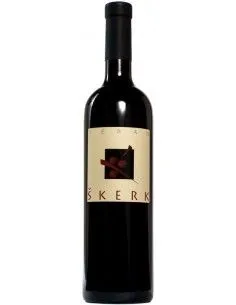-
All products
TypeWineriesItalyRest of the WorldGreat Wines
- Amarone in all its elegance
- Barolo and its Crus
- Bolgheri
- Bordeaux and the French Bordelais
- Brunello di Montalcino iconic
- Chianti ancient tradition
- Pinot Noir from the World
- Supertuscan the Italian Bordeaux blend
- Syrah Millenary Tradition
- Timorasso a jewel to discover
- Great International White Wines
- Great International Red Wines
-
Promotions
Promotions
-
Red Wines
Top 10 Italian Red WinesGreat Red Wines of the WorldTop French Red WinesRed Wines to Discover
-
White Wines
Top 10 Italian White WinesGreat White Wines of the WorldTop French White WinesWhite Wines to Discover
- Rosé Wines
-
Sparkling
ChampagneItalian Sparkling Wines
- Alta Langa
- Franciacorta
- Prosecco
- Sparkling wine
- Trentodoc
- Sparkling Wines Magnum size
- Organic Sparkling Wines
English Sparkling Wines -
Special Wines
Wines in Amphora
-
Distillates
Whisky by geographical originWhisky for raw materials
-
Exceptional Choices
Style & TrendGreat Wines
- Amarone in all its elegance
- Barolo and its Crus
- Bolgheri
- Bordeaux and the French Bordelais
- Brunello di Montalcino iconic
- Chianti ancient tradition
- Pinot Noir from the World
- Supertuscan the Italian Bordeaux blend
- Syrah Millenary Tradition
- Timorasso a jewel to discover
- Great International White Wines
- Great International Red Wines
- From the World
- Brands
- Blog
Terrano
Terrano is a unique and fascinating red wine, hailing from the evocative Karst lands. This wine is a hidden treasure of Friuli-Venezia Giulia and nearby Slovenia, where the vines root themselves in the limestone soil of this windy and sunny region. The grapes used to produce Terrano belong to the native Refosco grape variety, which in this area is called Terrano, a name that evokes the hardness and strength of the land from which it originates.
The history of Terrano intertwines with the farming traditions of these lands, where grapes have been cultivated with passion and dedication for centuries. This wine has found its identity thanks to the particular microclimate of the Karst, which offers significant temperature variations between day and night, essential for the development of the wine’s aromas and structure. Terrano is therefore the result of a perfect union between nature and human wisdom, passed down from generation to generation.
The organoleptic profile of Terrano is distinguished by its liveliness and freshness. On the nose, one perceives notes of fresh red fruits, such as cherries and raspberries, accompanied by delicate nuances of aromatic herbs and a characteristic iron note, reflecting the minerality of the Karst soil. On the palate, Terrano presents with a medium body, lively acidity, and soft tannins that make it pleasantly drinkable. It is a wine that surprises with its ability to age, developing complexity and depth over time.
The production technique of Terrano involves traditional vinification, preserving the distinctive character of the grape variety. The grapes are hand-harvested, carefully selected, and vinified in steel to maintain the freshness of the fruits. Some producers choose to age the wine in wooden barrels for a short period, further enriching the aromatic bouquet with spicy and vanilla notes.
Terrano is a versatile wine that pairs perfectly with local cuisine dishes, such as cured ham, aged cheeses, and grilled meats. It is also an ideal companion for mushroom and truffle-based dishes, thanks to its ability to enhance the earthy and complex flavors of these ingredients.
Explore our selection of Terrano on Vino45 and discover a wine that tells the story and culture of a unique land. Whether you are an enthusiastic connoisseur or a curious newcomer, allow yourself to be captivated by the intensity and freshness of Terrano, and experience an unforgettable oenological adventure.





